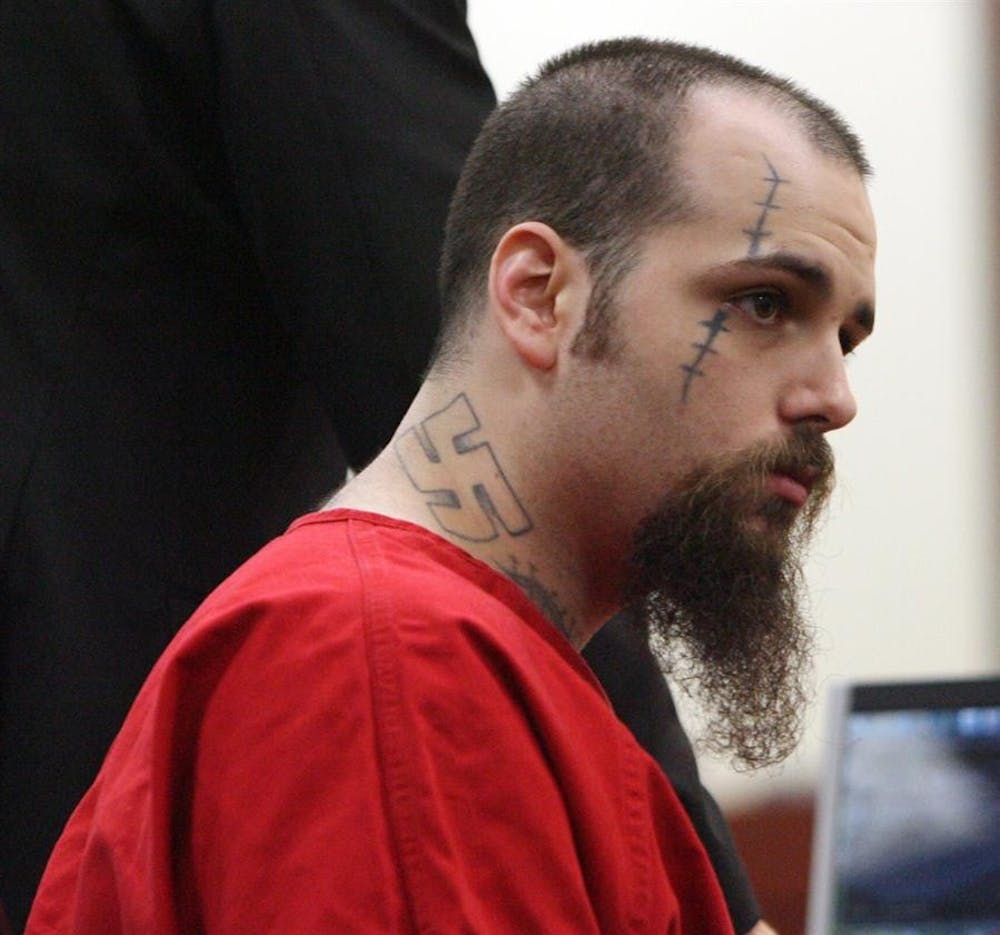NEW PORT RICHEY, Fla. – John Allen Ditullio is a walking billboard for the neo-Nazi movement: a large 6-inch swastika tattooed under his right ear, barbed wire inked down the right side of his face, and an extreme and very personal vulgarity scrawled on one side of his neck.
Jurors will never see any of it. A judge has ruled that the state must pay a cosmetologist up to $150 a day during Ditullio’s trial – for murder and attempted murder charges – to apply makeup to cover up the black ink.
Judge Michael Andrews, acting on a request by Ditullio’s lawyer, ruled that the tattoos are potentially offensive and could influence a jury’s opinion in the state’s death penalty case against the 23-year-old accused of breaking into a neighbor’s home and stabbing two people, killing one.
Since his arrest in the 2006 crime, the self-described neo-Nazi has added tattoos to his body that are not easily concealed. Ditullio doesn’t have the money to pay to have the tattoos covered up, said his public defender, Bjorn Brunvand, who was worried that a jury might be biased against his client based on the tattoos alone.
“Whenever someone is facing the death penalty, they should get a fair trial,” Brunvand said. “The jury can judge this case on the facts and the law and not base their decision on being offended.”
Any tattoos Ditullio had before his arrest won’t be covered, including a small cross under his right eye. Earlier this week, he wore a neatly pressed blue shirt and gray slacks, yet several tattoos on his hands and wrists were still visible.
The trial began Tuesday. Proceedings are expected to stretch into next week.
Prosecutors allege that Ditullio broke into his neighbor’s home, injured 44-year-old Patricia Wells, the home’s owner, and killed Kristofer King, a 17-year-old visitor.
Authorities called the stabbings a hate crime, and Wells agreed, previously telling local media that she believed Ditullio attacked her because she had a black friend – and because her own son was gay and Ditullio might have mistaken King for her son.
Covering tattoos for a trial is rare, said Michael Seigel, law professor at the University of Florida, especially in a case like this when the content of the tattoos mesh with the facts of the case.
“The defendant did initially make the choice to communicate to the world through the tattoos on his body,” said Seigel. “Now he’s asking for protection from his own decisions.”
Neo-Nazi in murder trial gets makeover for court

Get stories like this in your inbox
Subscribe



